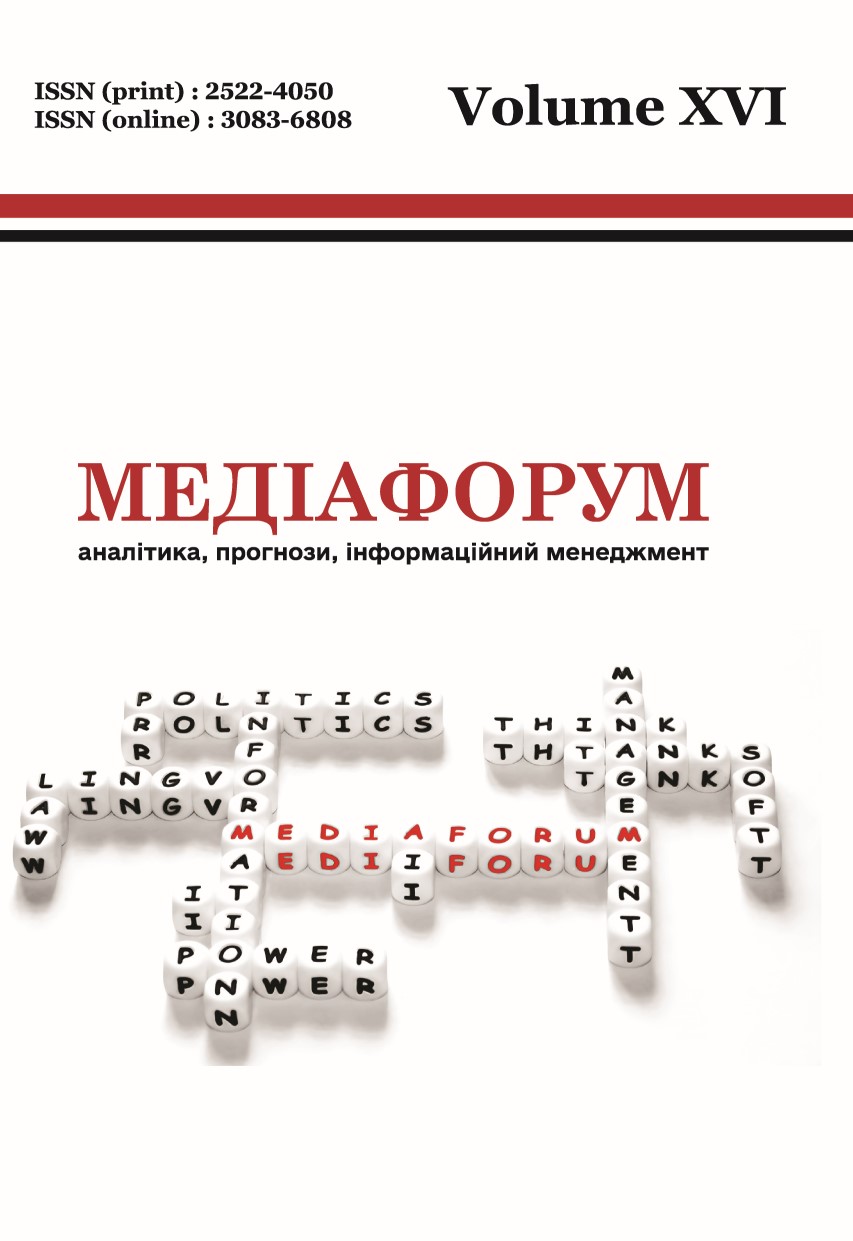Foreign Practices of Interaction between Government Bodies and Public Organizations: the Experience of the USA
DOI:
https://doi.org/10.31861/mediaforum.2025.16.270-281Keywords:
civil society organizations, public administration, political system, information space, civil society, volunteeringAbstract
Cooperation between government agencies and civil society organizations is a dynamic and multifaceted relationship that plays a crucial role in modern governance, social welfare and political innovation. Through the analysis of various international models, including the experience of the United States, the European Union, Scandinavia, Canada, and Australia, it becomes clear that such partnerships are an integral part of solving complex social problems. These collaborations are built on the premise that no single sector - government, business or civil society - can fully address the increasingly complex challenges facing modern society. By leveraging the unique strengths of each sector, governments and civil society organizations can work together to create more comprehensive solutions.
One of the most important benefits of government-CSO collaboration is the increased effectiveness of government programs. CSOs often have deep ties to local communities and are well positioned to understand and respond to needs. Their proximity to society allows them to propose tailored interventions that can complement broader government initiatives. In cases such as the United States, where federal and state governments have partnered with CSOs on health and social service programs, this community expertise has proven essential to creating more relevant and effective public services.
Downloads
References
1. AmeriCorps – What We Do. https://americorps.gov/about/what-we-do
2. American Civil Liberties Union – ACLU History. https://www.aclu.org/about/aclu-history
3. Bovaird T. 2004. Public–Private Partnerships: From Contested Concepts to Prevalent Practice. International Review of Administrative Sciences.70(2). P. 199-215. https://journals.sagepub.com/doi/epdf/10.1177/0020852304044250
4. Brookings Institution – About Us. https://www.brookings.edu/about-us/
5. Drug and Alcohol Rehab in Massachusetts. American Addiction Centers. https://americanaddictioncenters.org/treatment-centers/massachusetts
6. Endangered Species Act (1973). https://www.fws.gov/law/endangered-species-act
7. Environmental Defense Fund – Who we are. https://www.edf.org/about
8. Funding opportunities for NGOs. European Commission. https://commission.europa.eu/funding-tenders/how-apply/eligibility-who-can-get-funding/funding-opportunities-ngos_en
9. Head Start Services. An Office of the Administration for Children & Families: Office of Head Start. https://www.acf.hhs.gov/ohs/about/head-start
10. Homelessness Programs and Resources. The Substance Abuse and Mental Health Services Administration. https://www.samhsa.gov/homelessness-programs-resources
11. Salamon L.M. 2002. The Tools of Government: A Guide to the New Governance. https://spia.uga.edu/faculty_pages/tyler.scott/teaching/PADP6950_Spring2017/Readings/Salamon.2002.Ch1.pdf
12. Selsky J.W. & Parker B. 2005. Cross-Sector Partnerships to Address Social Issues: Challenges to Theory and Practice. Journal of Management. 31(6) Р. 849-873. https://www.researchgate.net/publication/247570170_Cross-Sector_Partnerships_to_Address_Social_Issues_Challenges_to_Theory_and_Practice#full-text
13. National Resources Defense Council. https://www.nrdc.org/about
14. The Clean Air Act. (1990). https://www.boem.gov/air-quality-act-1967-or-clean-air-act-caa
15. The Human Rights Campaign – Our Mission. https://www.hrc.org/about
16. U.S. Department of Health and Human Services – About HSS https://www.hhs.gov/about/index.html














